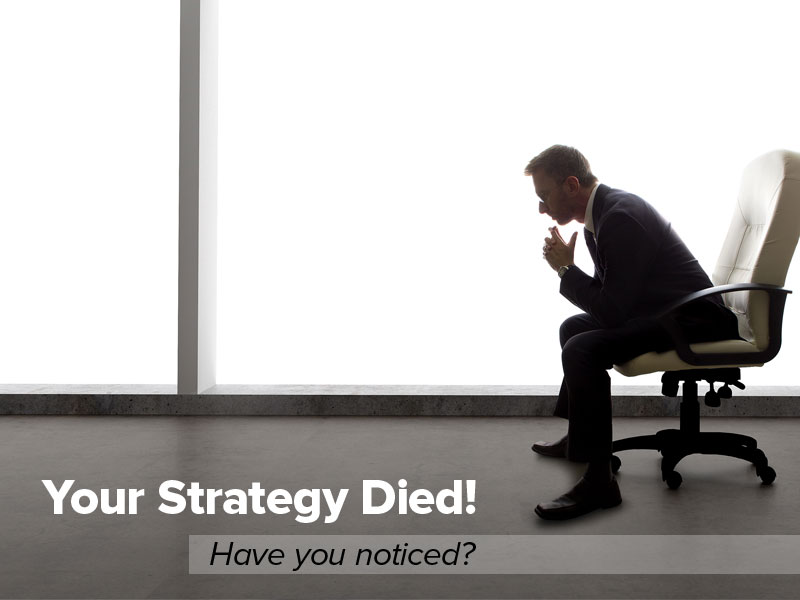Is your thought leadership strategy as solid as a rock? Let's get real—having a strategy…
Your Strategy Died! Have You Noticed?
We are living in truly remarkable times. Due to multiple factors such as our knowledge of nutrition and exercise, as well as the amazing advances in medicine, it’s quite likely that someone reading this today can expect to live to 100. If you were born in 1900 it would have been 47. Given that I’m 48 that’s a statistic that is surprising to say the least.
We can also expect the cars we buy today to last longer and break down less. Ditto for home electronics, computers and smartphones. The list is almost endless. Almost that is.
The life of a viable strategy is shorter than it has ever been. Think about it. If you owned a book store 30 years ago how often (if ever) did you need to change your strategy? Not often. You’d use different tactics but your strategy would be pretty much locked and loaded.

And then … BAM you got Amazoned. Time to go back to the drawing board or close down. There is not an industry out there that has not had to radically change its strategy at a faster pace than ever before just to remain viable. Auto sales, software, eye glasses, shoes, televisions, consulting, publishing. The list is endless.
So why do many authors, speakers and thought leaders still operate from an antiquated playbook?
Why do they think that they will win in a very competitive marketplace if they are using a strategy that worked in 1997? I’m not so sure but here are a few hypotheses.
- They have seen it work for someone they admired and it worked for them early on.
- They are not up to date on the state of the publishing industry.
- They are not aware of the radical changes that have transformed the training and development space in the last ten to fifteen years.
- They don’t respect social media.
- They just want to focus on their content and not worry about the “business stuff”
- They are not thinking enough about the needs of the buyer of content as opposed to the end user.
- They lack business savvy.
- They think of themselves as an expert and not someone that is in the content business.
- It’s overwhelming and confusing.
- They haven’t studied the marketplace.
These are just a few potential reasons. Many authors and thought leaders struggle with several of them. If you don’t have a strategy or if you have not done a thorough analysis of your current one in the last two or more years chances are yours is not optimal. The business world and more specifically the content business is changing and has changed radically. While you may still be successful working from a dated strategic plan you are at a disadvantage and your model just isn’t sustainable.
I’d rather live in a time where we get to live longer than our business models and strategies while adapting and changing along the way than live in a time where strategies were static but we didn’t make it to 50.
Comments (1)
Comments are closed.





I think another reason for this could be that they feel connected to the old playbook. Whether they created it or someone else did, it’s comfortable and known. Stepping away from that can be scary.